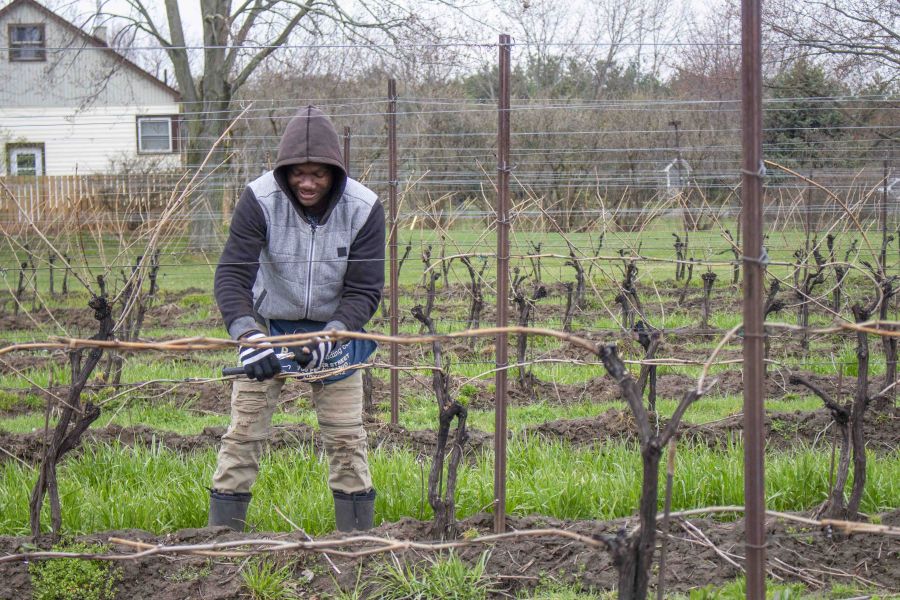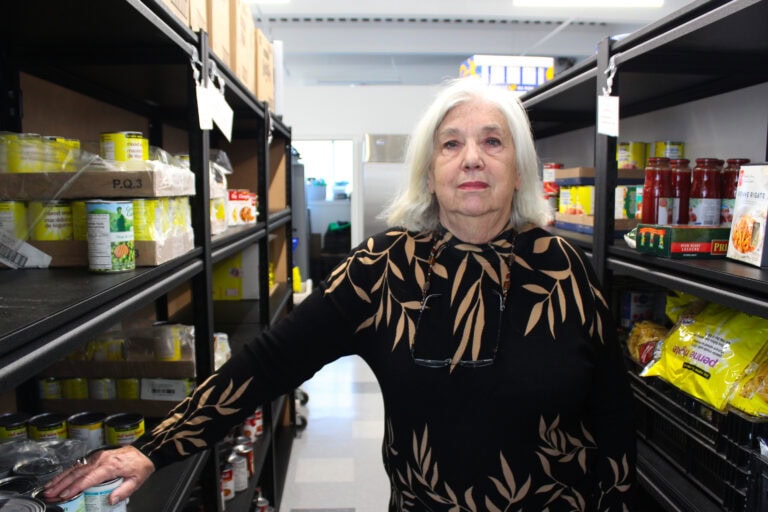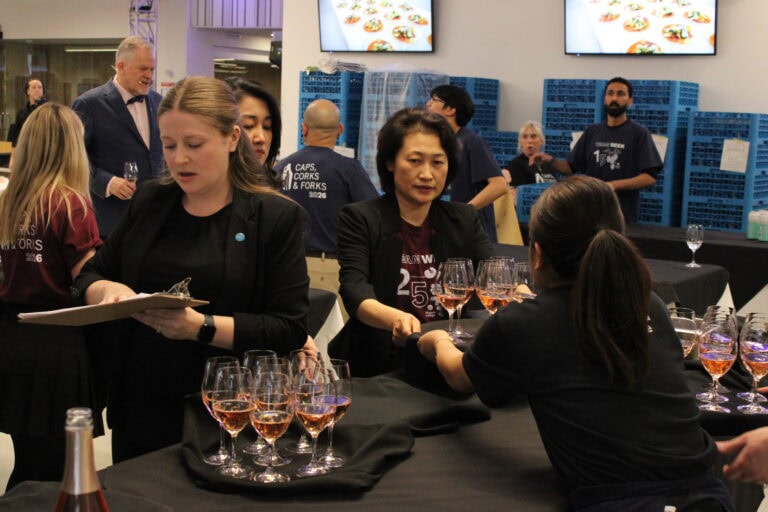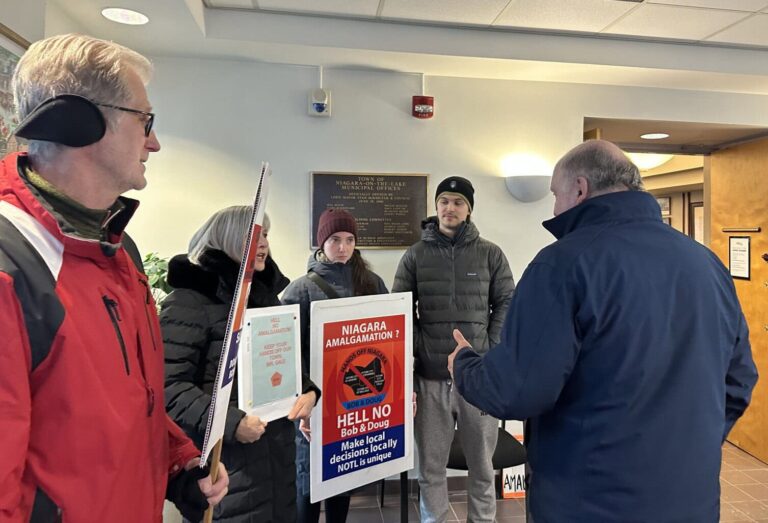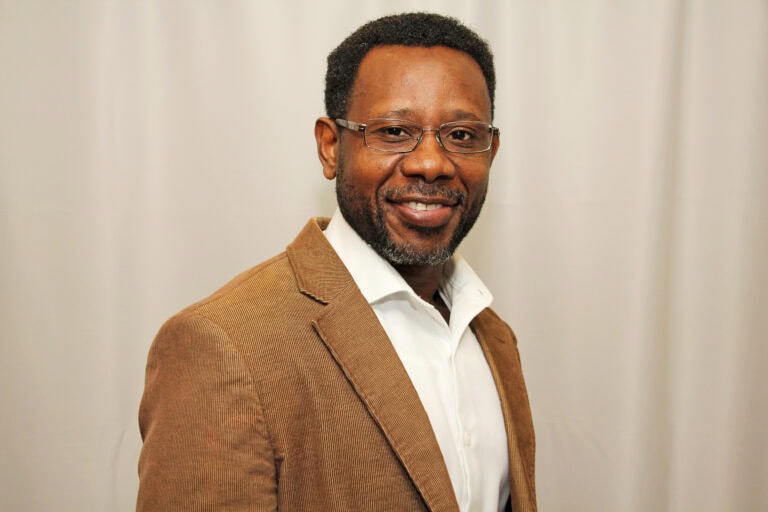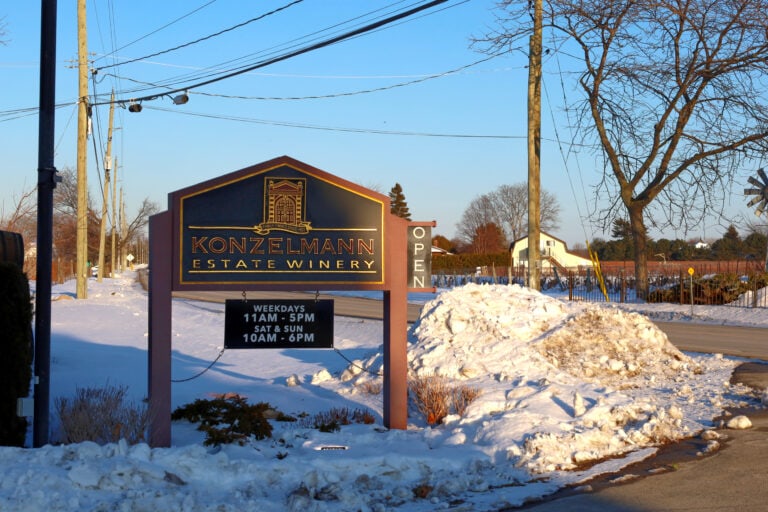But migrant worker advocates worry about power imbalance and job security
With a new farming season well under way, so has the yearly influx of seasonal migrant workers.
This is a complicated operation in any year, requiring meticulous co-ordination between governments and farmers, made even more difficult by COVID-19, Although farmers say things have become a little easier more than 12 months into the pandemic.
“We already had last summer as a starting point on how to move forward this year,” says Erwin Wiens, a Niagara-on-the-Lake grape grower and town council member. “So all the protocols were already in place.”
Kevin Buis, owner of Glenlake Orchards and Vineyards on Lakeshore Road, said, “I’m very fortunate in vineyards because the rows are eight feet apart,” noting that social distancing is easily enforceable.
In some ways protocols were enhanced this year to guarantee even more safety, Wiens noted. “Last year they weren’t doing testing. Now they’re being tested in their country of origin, when they arrive in Toronto” and again after a 14-day quarantine.
While the provincial and federal governments instituted safety protocols, the municipal government is available to answer any questions farmers might have. “The town has been helping us by offering education and assistance if we need it,” said Wiens. “If anybody has any questions, they have the answers”.
Some wish that health and safety inspections and protocols would be a little more centralized. “There’s been a fair bit of government oversight,” said Buis. “My biggest complaint would be that there’s three levels of government looking at this. I just wish they could all get together in one room and do it at once, instead of making us do it three times.”
Meanwhile, Kit Andres, Niagara organizer for the Migrant Workers Alliance for Change, says the power relationship between farmer and migrant worker has become even more unbalanced due to COVID-19.
“You can have all the inspections in the world, but none of these rules that are being created address the fundamental problem, which is the workers’ lack of ability to assert their rights,” she said.
Andres points out that the unbalanced power relationship between farmer and migrant worker makes it hard for seasonal staff to speak up when they’re put in harmful situations. “With the way that the program works they’re tied to one single employer. So if that employer doesn’t request them back the next year, they’re off the program.”
Two weeks ago, Niagara's public health department sent out a call to local farmers to get their workers vaccinated at the Seymour-Hannah Centre in St. Catharines, in an effort to minimize COVID spread among farm workers.
Buis said his migrant workers, all of whom hail from Jamaica, chose to get vaccinated, but among his local, Canadian workers there were some who declined. “I don’t know what it is. It’s personal liberty on their behalf. I offered it to them and they chose not to.”
Wiens said he didn’t see any hesitation among his workers “because, of course, folks want to get it.”
But there are concerns farmers don’t really give migrant workers the option of choosing if they want the vaccine, said Andres.
“I’m hearing from a number of farm workers, including in Niagara, that they are feeling like they’re not given a choice. Some workers are being told that if they don’t get a vaccine, they won’t have a job or they won’t be called back on the program next year. Because of the power imbalance due to their status, it makes it a coercive experience for them.”
Wiens said the region made sure all migrant workers consented to the vaccination.
“They had interpreters there for everybody so every worker that got vaccinated was clear on what was happening, what their rights were, that this was their decision, so it worked out very well.”



